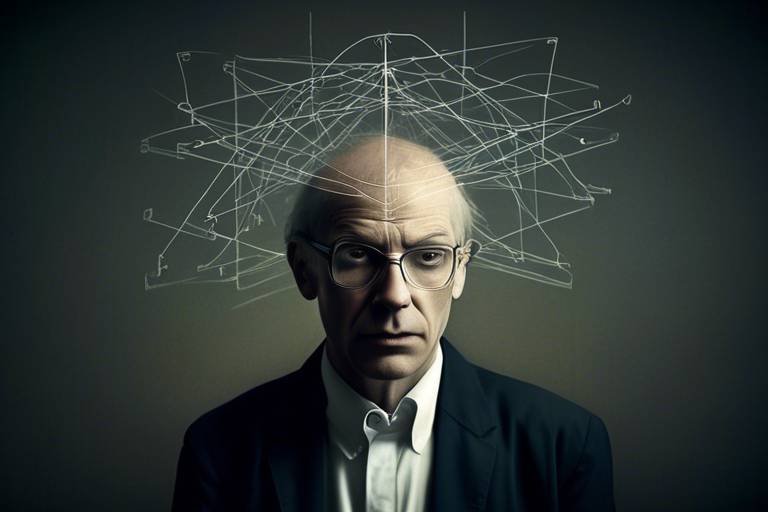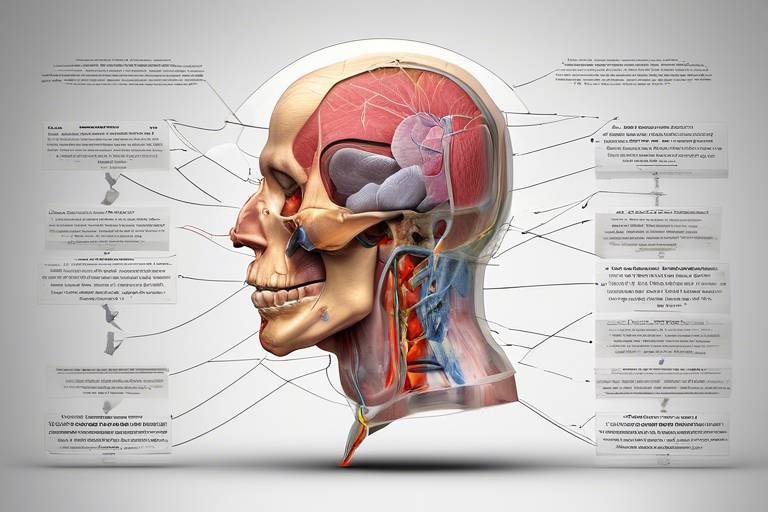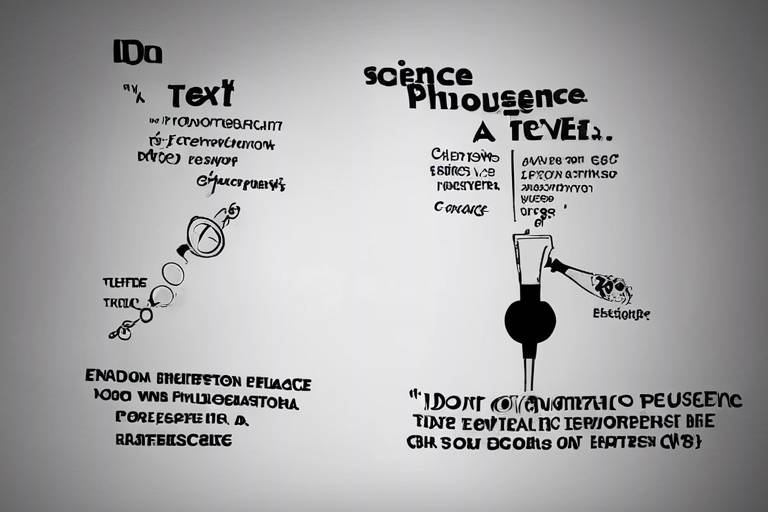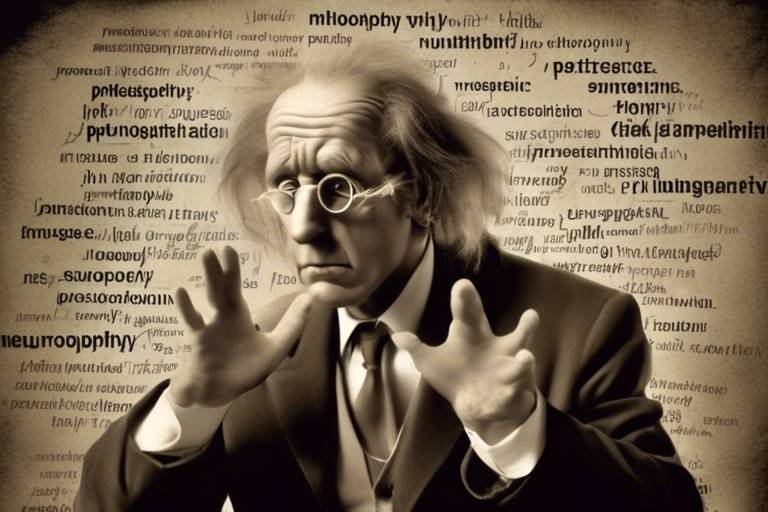Cartesian Doubt and Neuroscience - An Examination
This article explores the intersection of Cartesian doubt and neuroscience, analyzing how skepticism about knowledge impacts our understanding of the brain and consciousness. At its core, Cartesian doubt is a fundamental philosophical approach that encourages us to question everything we think we know. But how does this ancient method of skepticism relate to our modern understanding of the brain? In a world dominated by rapid technological advancements and scientific discoveries, it's essential to bridge these two realms to uncover deeper insights into our existence.
Cartesian doubt, introduced by the French philosopher René Descartes, serves as a philosophical method to question beliefs. Descartes famously stated, "Cogito, ergo sum" or "I think, therefore I am," which highlights the importance of doubt in the quest for certainty. By systematically doubting everything that could possibly be doubted, Descartes aimed to arrive at a foundation of knowledge that was absolutely certain. This approach is significant not only in philosophy but also in how we approach knowledge in various fields, including science and neuroscience. The principles of Cartesian doubt challenge us to critically evaluate our beliefs, leading to a more profound understanding of the world around us.
Neuroscience offers intriguing insights into how doubt manifests in the brain. Various brain regions are involved in decision-making and belief formation, which are crucial when we grapple with skepticism. For instance, the prefrontal cortex plays a vital role in evaluating information and making judgments, while the amygdala processes emotions that can influence our beliefs. Understanding these biological underpinnings can help us comprehend why we experience doubt and how it shapes our perceptions.
Understanding the cognitive processes that generate doubt can illuminate how we evaluate information. Our brains are wired to assess the reliability of the information we encounter constantly. This involves several mental mechanisms, including:
- Critical thinking: The ability to analyze and evaluate arguments logically.
- Confirmation bias: The tendency to favor information that aligns with our preexisting beliefs.
- Metacognition: Awareness of our thought processes and the ability to reflect on our reasoning.
These cognitive processes can lead us to revise our beliefs, often in response to new evidence or experiences. When we encounter information that conflicts with our beliefs, doubt can either strengthen our convictions or prompt us to reconsider our stance.
Emotions significantly affect our capacity for doubt. Feelings like fear and anxiety can cloud our judgment and lead to cognitive biases. For example, when faced with uncertain situations, our emotional responses can either paralyze us with doubt or push us to seek out information that confirms our fears. This interplay between emotion and cognition is crucial in understanding how we form beliefs and the role doubt plays in that process.
One fascinating aspect of neuroscience is neuroplasticity, the brain's ability to adapt and change throughout our lives. This adaptability means that our beliefs are not fixed; they can evolve over time based on new experiences and information. When we actively engage with doubt, we open ourselves to the possibility of belief change. Neuroplasticity allows us to reshape our understanding and acceptance of doubt, ultimately leading to a more nuanced perspective on the world.
The intersection of neuroscience and Cartesian doubt raises profound philosophical questions. As scientific discoveries challenge traditional notions of knowledge and certainty, we must reconsider what it means to "know" something. If our beliefs are influenced by biological processes and emotional states, how reliable are they? This inquiry invites us to reflect on the nature of knowledge itself and the extent to which skepticism should guide our understanding of reality.
Applying Cartesian doubt within neuroscience can enhance research methodologies. By embracing skepticism, researchers can develop more rigorous experimental designs and interpretations. This critical approach encourages scientists to question their assumptions and remain open to alternative explanations, ultimately leading to more robust findings and a deeper understanding of the brain.
Skepticism plays a crucial role in ethical decision-making in neuroscience. By maintaining a healthy level of doubt, researchers can ensure responsible practices and avoid potential pitfalls in their studies. Ethical considerations, such as informed consent and the implications of findings, require a careful examination of our beliefs about what is right and wrong in research.
Exploring the relationship between Cartesian doubt and neuroscience opens new avenues for research. Potential areas for future investigation include:
- Interdisciplinary collaboration: Combining philosophical inquiry with neuroscientific research to explore the nature of belief.
- Impact of technology: Understanding how modern technology influences our capacity for doubt and belief formation.
- Cognitive therapies: Investigating how insights from neuroscience can inform therapeutic approaches to address cognitive biases and promote healthy skepticism.
By delving into these areas, researchers can uncover valuable insights that enhance our understanding of the brain and consciousness.
Q: What is Cartesian doubt?
A: Cartesian doubt is a philosophical method introduced by René Descartes that involves questioning beliefs to establish a foundation of certainty.
Q: How does neuroscience relate to doubt?
A: Neuroscience explores the brain mechanisms involved in doubt, decision-making, and belief formation, providing insights into how we process information.
Q: Can emotions influence our capacity for doubt?
A: Yes, emotions like fear and anxiety can significantly affect our ability to doubt and shape our beliefs.
Q: What is neuroplasticity?
A: Neuroplasticity is the brain's ability to adapt and change, allowing beliefs to evolve based on new experiences and information.
Q: Why is skepticism important in neuroscience research?
A: Skepticism encourages researchers to question their assumptions and develop more rigorous methodologies, leading to more reliable findings.

The Foundations of Cartesian Doubt
Cartesian doubt, introduced by the renowned philosopher René Descartes, serves as a foundational pillar in the realm of skepticism. At its core, Cartesian doubt is not merely a cynical dismissal of knowledge; rather, it is a rigorous method of inquiry that invites us to question the very essence of what we believe to be true. Descartes famously declared, "Cogito, ergo sum" ("I think, therefore I am"), a statement that emerged from his profound skepticism. This phrase encapsulates the essence of his philosophical journey, where he sought to strip away all uncertain beliefs to arrive at something indubitable.
The significance of Cartesian doubt lies in its ability to challenge our assumptions. In a world overflowing with information, where the line between fact and fiction often blurs, Descartes' method encourages us to pause and reflect. It compels us to ask critical questions such as: What do I truly know? and How can I be certain of my beliefs? By adopting a skeptical lens, we not only assess our knowledge but also open ourselves to the possibility of new insights and understanding.
To further appreciate the foundations of Cartesian doubt, we can outline its key principles:
- Methodical Skepticism: This involves systematically doubting the veracity of all beliefs until only the most certain remain.
- Indubitable Knowledge: The aim is to discover knowledge that is absolutely certain and beyond doubt.
- Separation of Mind and Body: Descartes proposed a dualistic view, suggesting that the mind and body are distinct entities, which raises questions about consciousness and perception.
Descartes' approach has profound implications not only in philosophy but also in the field of neuroscience. As we explore the brain and its functions, the questions raised by Cartesian doubt become increasingly relevant. For instance, how does our brain process doubt? What neural mechanisms underpin our ability to question our beliefs? These inquiries bridge the gap between philosophy and science, creating a rich dialogue that continues to evolve.
In summary, the foundations of Cartesian doubt challenge us to critically evaluate our beliefs and knowledge. By embracing skepticism, we not only honor Descartes' legacy but also equip ourselves with the tools necessary to navigate an increasingly complex world. This philosophical inquiry is not just an academic exercise; it is a vital practice that can enhance our understanding of ourselves and the universe around us.
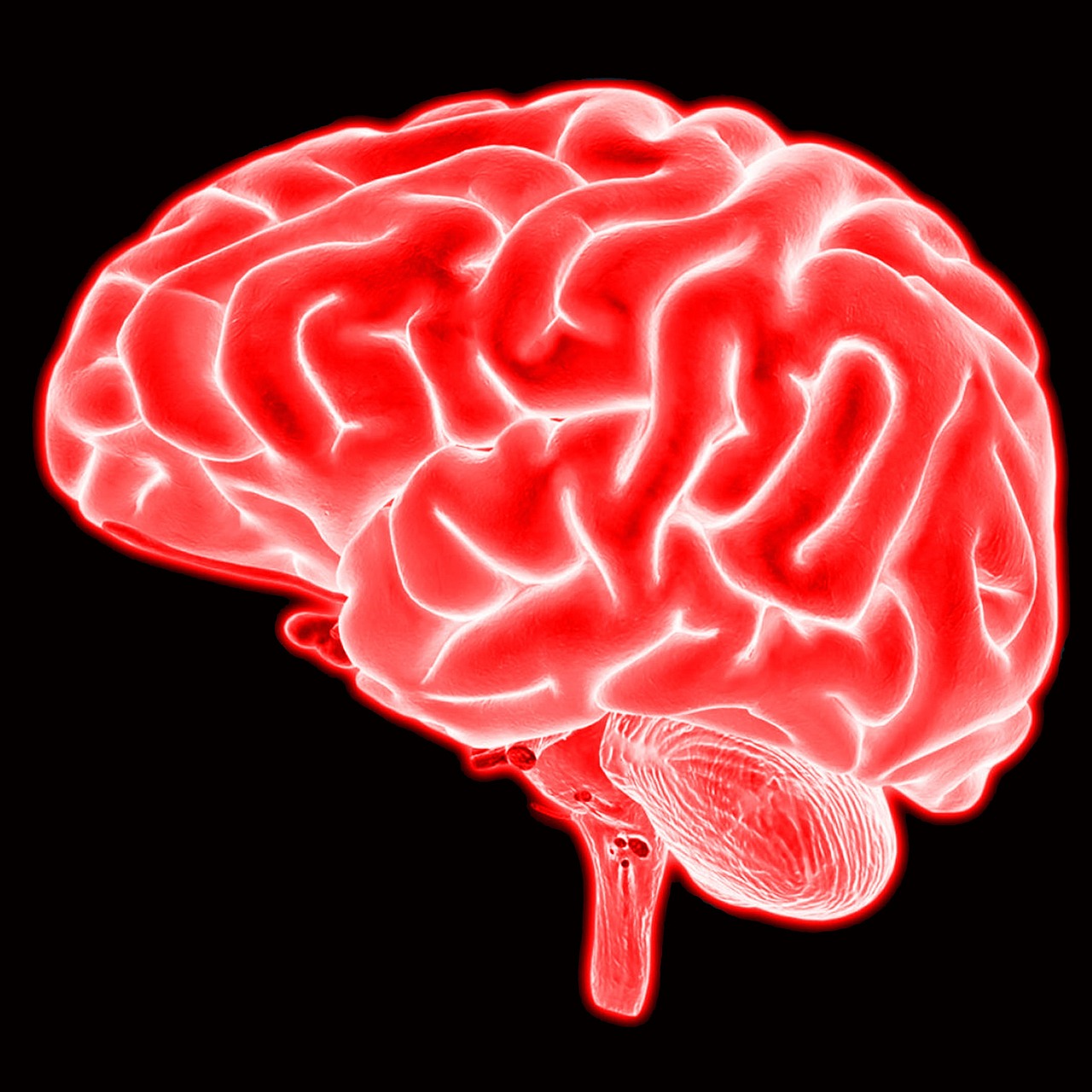
The Role of Neuroscience in Understanding Doubt
Neuroscience plays a pivotal role in unraveling the complexities of doubt, offering a window into how our brains process uncertainty and skepticism. When we experience doubt, it's not just a fleeting thought; it's a complex interplay of brain activity that can significantly influence our decision-making and belief systems. Research shows that specific areas of the brain, such as the prefrontal cortex and the anterior cingulate cortex, are crucial in managing doubt and evaluating conflicting information. These regions are responsible for higher cognitive functions, including reasoning, problem-solving, and emotional regulation.
When we question our beliefs or the information presented to us, our brain engages in a sort of internal dialogue, weighing evidence and assessing outcomes. This process is akin to a courtroom trial, where various pieces of evidence are presented, and the brain acts as both the judge and the jury, deliberating on what to accept as truth. The act of doubting can trigger a cascade of neural responses, leading to increased activity in areas associated with risk assessment and emotional processing.
Interestingly, neuroscience also reveals that doubt is not merely a cognitive exercise; it is deeply intertwined with our emotions. For instance, when we feel anxious or fearful, our capacity for doubt can be magnified, making us more susceptible to skepticism. This emotional backdrop can skew our perception of reality, leading us to question even the most solid pieces of evidence. It's as if our emotions act as a lens, coloring our interpretation of the world around us.
Moreover, the concept of neuroplasticity offers insights into how our brains adapt to experiences of doubt over time. Just as a muscle strengthens with use, our neural pathways can be reshaped based on our encounters with uncertainty. This means that the more we engage with doubt—whether through critical thinking or challenging our preconceived notions—the more adept our brains become at navigating complex beliefs. We can think of it as training for our cognitive abilities, where each experience of doubt builds a stronger foundation for future decision-making.
In summary, neuroscience sheds light on the multifaceted nature of doubt, illustrating how it is both a cognitive and emotional phenomenon. By understanding the neural mechanisms behind doubt, we can better appreciate how our brains influence our beliefs and decision-making processes. This knowledge not only enhances our understanding of skepticism but also provides a framework for exploring how we can cultivate a healthier relationship with doubt in our everyday lives.
- What is Cartesian doubt? Cartesian doubt is a philosophical method introduced by René Descartes that involves questioning the validity of one's beliefs to establish a foundation for certain knowledge.
- How does neuroscience relate to doubt? Neuroscience examines the brain's mechanisms involved in processing doubt, highlighting how specific brain regions manage decision-making and emotional responses to uncertainty.
- Can doubt be beneficial? Yes, doubt can lead to critical thinking and better decision-making by prompting individuals to evaluate information more thoroughly.
- What is neuroplasticity? Neuroplasticity is the brain's ability to adapt and reorganize itself in response to experiences, including how it processes doubt and belief changes over time.

Cognitive Processes Underlying Doubt
Understanding the cognitive processes that generate doubt is akin to peeling back the layers of an onion—each layer reveals more complexity and nuance. At its core, doubt arises from a natural, human tendency to question and evaluate. This process is not merely a passive experience; it actively engages various mental mechanisms that help us navigate the murky waters of uncertainty. When we encounter new information or conflicting beliefs, our brains engage in a rigorous analysis, weighing evidence and considering the implications of what we know—or think we know.
One of the key components in this cognitive evaluation is metacognition, which refers to our awareness and understanding of our own thought processes. Metacognitive skills allow us to reflect on our beliefs and the reasons behind them. For instance, when faced with a challenging question, we might pause to consider not just the answer, but how we arrived at that conclusion. This self-reflection can lead to doubt, especially if we realize that our reasoning is flawed or based on insufficient evidence.
Additionally, cognitive biases play a significant role in shaping our doubts. These biases are mental shortcuts that can lead us to erroneous conclusions or reinforce existing beliefs. For example, the confirmation bias causes individuals to favor information that confirms their pre-existing beliefs while dismissing contradictory evidence. This can create a feedback loop, where doubt is stifled rather than encouraged. Understanding these biases is crucial because they can cloud our judgment and hinder our ability to embrace skepticism effectively.
Moreover, the availability heuristic can influence how we perceive doubt. This cognitive shortcut relies on immediate examples that come to mind when evaluating a particular topic. If someone has recently experienced a negative event related to a belief, they might be more inclined to doubt that belief based on that singular experience, rather than considering a broader range of evidence. This highlights how our emotions and past experiences intertwine with our cognitive processes, amplifying or diminishing our capacity for doubt.
In the realm of neuroscience, studies have shown that specific brain regions are activated during doubt-related tasks. For instance, the prefrontal cortex—the area responsible for higher-order thinking and decision-making—plays a critical role in evaluating conflicting information. When we experience doubt, this region helps us analyze the credibility of sources and the validity of arguments. Understanding these cognitive processes not only sheds light on how we experience doubt but also emphasizes the importance of fostering an open-minded approach to new information.
Ultimately, the cognitive processes underlying doubt are a complex interplay of metacognition, cognitive biases, and emotional influences. By recognizing these factors, we can better navigate our doubts and foster a more nuanced understanding of the world around us. This awareness can lead us to question our assumptions and beliefs, paving the way for personal growth and intellectual development.
- What is Cartesian doubt? Cartesian doubt is a philosophical method introduced by René Descartes that involves questioning the validity of one's beliefs to achieve certainty.
- How does neuroscience relate to doubt? Neuroscience explores the brain mechanisms involved in doubt, including the regions responsible for decision-making and belief formation.
- Can doubt be beneficial? Yes, doubt can encourage critical thinking and lead to a deeper understanding of complex issues by prompting individuals to seek more information and question their assumptions.
- What role do emotions play in doubt? Emotions such as fear and anxiety can significantly influence our capacity for doubt, often leading to cognitive biases that affect our beliefs.

Emotional Influences on Doubt
When we dive into the intricate relationship between emotions and doubt, it's like peeling back layers of an onion—each layer revealing a deeper understanding of how we perceive our beliefs and the world around us. Emotions are not just fleeting feelings; they are powerful forces that can shape our thoughts and perceptions in significant ways. For instance, have you ever felt a wave of anxiety wash over you when faced with a tough decision? That anxiety can cloud your judgment, making it difficult to trust your instincts or the information at hand. It's as if your emotions are the fog that obscures the path of clarity.
Research has shown that emotions such as fear, sadness, and even joy can influence the way we approach doubt. When we experience fear, our brains may enter a survival mode, prioritizing immediate threats over rational thought. This can lead to a heightened sense of skepticism, where we question not only the external situation but also our internal beliefs. On the flip side, positive emotions like joy can foster open-mindedness, allowing us to embrace uncertainty and explore new ideas without the heavy burden of doubt. It's a fascinating dichotomy—our emotions can either act as a bridge to understanding or a barrier to clarity.
Moreover, cognitive biases often come into play, influenced heavily by our emotional state. For instance, when we are anxious, we might fall prey to confirmation bias, where we seek out information that supports our fears while ignoring evidence that contradicts them. This creates a feedback loop that reinforces our doubts, making it increasingly challenging to break free from the cycle of skepticism. Understanding this connection is crucial, as it highlights the importance of emotional regulation in navigating doubt.
To illustrate this complex interplay, consider the following table that outlines common emotions and their potential impact on doubt:
| Emotion | Impact on Doubt |
|---|---|
| Fear | Increases skepticism, leading to heightened questioning of beliefs. |
| Sadness | May induce a sense of hopelessness, causing individuals to doubt their ability to change. |
| Joy | Encourages openness, reducing the tendency to doubt and fostering exploration. |
| Anxiety | Can lead to confirmation bias, reinforcing existing doubts and fears. |
In essence, our emotional landscape is a critical factor in how we experience doubt. Recognizing this influence can empower us to manage our emotions more effectively, allowing for a healthier relationship with skepticism. By cultivating emotional awareness, we can learn to navigate our doubts with a clearer mind, embracing uncertainty as a natural part of the human experience rather than a hindrance.

Neuroplasticity and Belief Change
Neuroplasticity, often referred to as the brain's ability to reorganize itself by forming new neural connections, plays a pivotal role in how we adapt our beliefs over time. Think of it as the brain's way of saying, "I can change!" This is crucial because our beliefs are not set in stone; they are as malleable as clay in the hands of a sculptor. When we encounter new experiences or information, our brains can rewire themselves, allowing us to update our beliefs based on what we learn.
For instance, when we challenge our preconceived notions—like realizing that a long-held belief about a certain group of people is based on stereotypes rather than facts—our brain engages in a process of neuroplasticity. This process not only helps us discard outdated beliefs but also fosters a more nuanced understanding of the world around us. In essence, neuroplasticity provides the biological foundation for belief change, enabling us to evolve intellectually and emotionally.
Research has shown that certain activities can enhance neuroplasticity, including:
- Learning new skills: Engaging in new hobbies or learning a new language can stimulate brain growth.
- Physical exercise: Regular physical activity has been linked to improved cognitive function and increased neurogenesis.
- Meditation: Mindfulness practices can lead to structural changes in the brain, promoting emotional regulation and reducing stress.
Moreover, neuroplasticity is not just about acquiring new beliefs; it also involves the unlearning of outdated or harmful beliefs. This can be particularly important in therapeutic settings, where techniques like cognitive-behavioral therapy (CBT) leverage the brain's plasticity to help individuals reshape their thought patterns. By systematically questioning and reframing negative beliefs, individuals can create healthier mental frameworks.
In conclusion, neuroplasticity is a powerful ally in the journey of belief change. It reminds us that our minds are not fixed; rather, they are dynamic and capable of growth. As we continue to explore the intricate relationship between our thoughts and brain function, we can appreciate the profound impact that our experiences and choices have on shaping who we are.
- What is neuroplasticity? Neuroplasticity is the brain's ability to reorganize itself by forming new neural connections throughout life.
- How does neuroplasticity affect beliefs? Neuroplasticity allows us to change our beliefs by adapting to new information and experiences.
- Can neuroplasticity be enhanced? Yes, activities such as learning new skills, exercising, and practicing mindfulness can enhance neuroplasticity.
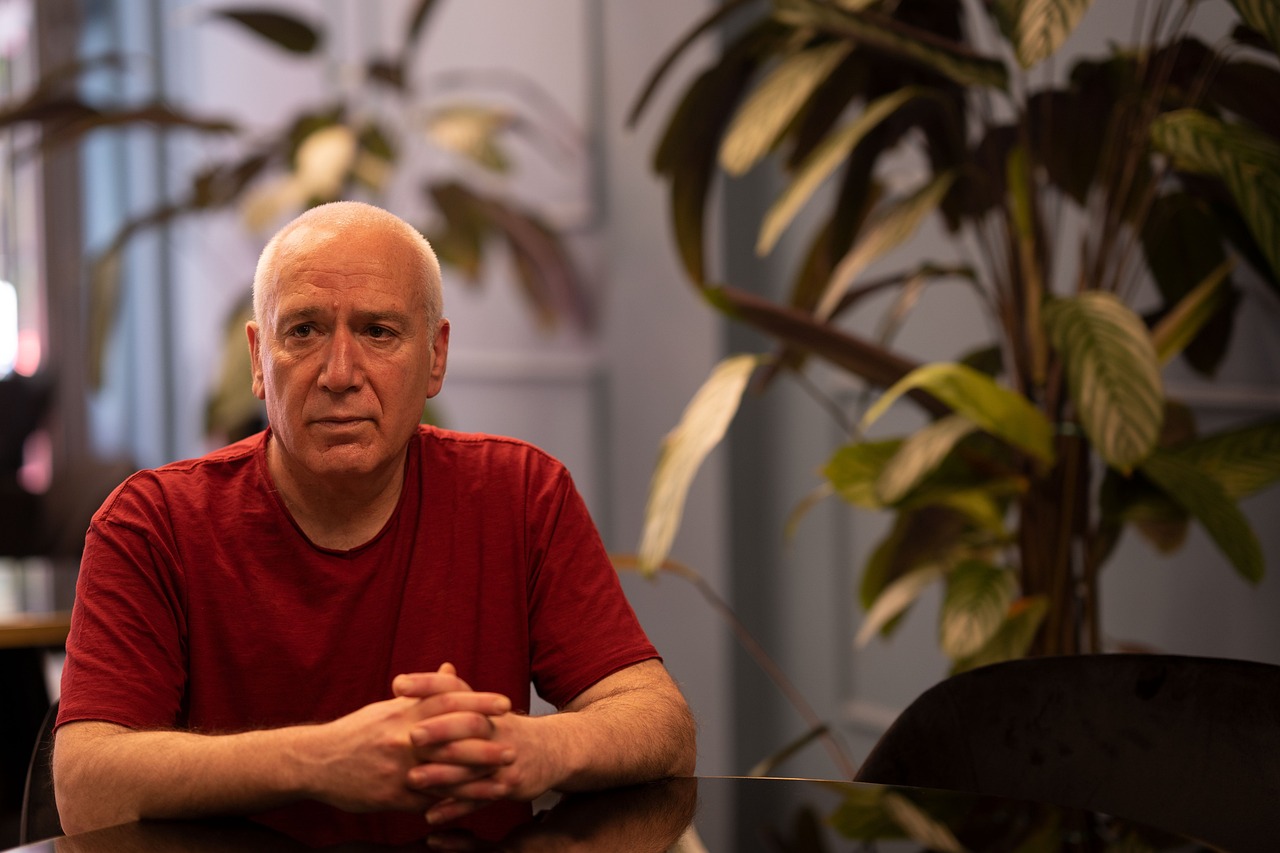
Philosophical Implications of Neuroscientific Findings
When we delve into the philosophical implications of neuroscientific findings, we find ourselves standing at a fascinating crossroads where science meets the age-old inquiries of philosophy. Neuroscience, with its intricate mapping of the brain and its functions, challenges our traditional notions of knowledge, belief, and consciousness. For instance, if our thoughts and beliefs are merely products of neural processes, what does that say about the authenticity of our experiences? Are we merely biological machines, or is there a more profound essence to our consciousness?
One of the most striking implications is the challenge it poses to the concept of free will. As neuroscientific studies reveal the brain's decision-making processes, they often suggest that many of our choices are predetermined by neural activity that occurs before we even become consciously aware of them. This raises the question: if our decisions are rooted in brain activity, to what extent can we claim to be the authors of our actions? Such questions can lead to a reevaluation of moral responsibility and accountability in both philosophical and practical contexts.
Moreover, the findings in neuroscience also compel us to reconsider the nature of self-awareness. As we learn more about how brain regions contribute to our sense of self, it becomes evident that our understanding of who we are is not as fixed as we might believe. This fluidity can be both liberating and disconcerting, as it suggests that our identities are subject to change based on our experiences and interactions with the world. This notion aligns closely with the principles of Cartesian doubt, which encourages us to question the very foundations of our beliefs and perceptions.
Additionally, the biological basis of beliefs invites a deeper inquiry into the nature of truth. If our beliefs are shaped by the brain's wiring and the biochemical processes within, then what constitutes objective truth? Are our perceptions merely subjective interpretations of reality, influenced by our brain's unique configuration? This line of questioning can lead us to a more nuanced understanding of knowledge, urging us to embrace a more skeptical perspective as we navigate the complexities of human cognition.
To further illustrate these philosophical implications, consider the following table that summarizes key areas where neuroscience intersects with philosophical thought:
| Neuroscientific Finding | Philosophical Implication |
|---|---|
| Brain activity precedes conscious decision-making | Challenges the notion of free will |
| Neural plasticity and belief formation | Suggests that identity is fluid and changeable |
| Variability in perception based on brain structure | Questions the concept of objective truth |
In conclusion, the intersection of neuroscience and Cartesian doubt opens up a treasure trove of philosophical inquiries. It encourages us to remain skeptical, not just of the external world but also of our internal landscapes. By embracing this skepticism, we can foster a deeper understanding of ourselves and the intricate workings of our minds. As we continue to explore these profound questions, it becomes clear that the dialogue between neuroscience and philosophy is not just an academic exercise but a vital exploration of what it means to be human.
- What is Cartesian doubt? - Cartesian doubt is a philosophical method introduced by René Descartes, which involves questioning the certainty of one's beliefs to establish a foundation for true knowledge.
- How does neuroscience relate to doubt? - Neuroscience provides insights into how doubt manifests in the brain, highlighting the biological basis for skepticism and belief formation.
- What are the implications of neuroscience on free will? - Neuroscientific findings suggest that our decisions may be influenced by brain activity before we consciously make a choice, challenging traditional notions of free will.
- Can beliefs change over time? - Yes, neuroplasticity allows the brain to adapt and change beliefs based on new experiences and information, suggesting that our understanding of the world is not fixed.
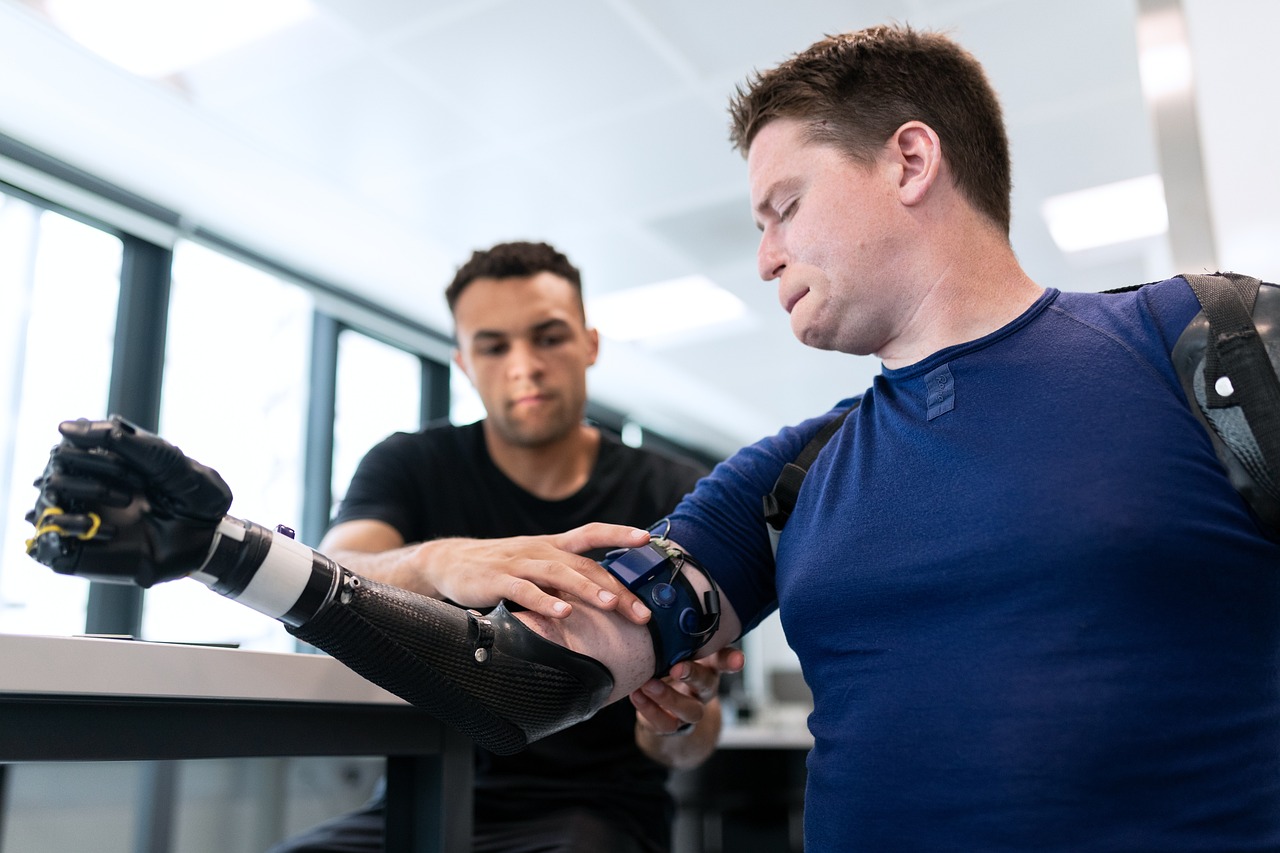
Applications of Cartesian Doubt in Neuroscience
When we think about Cartesian doubt, it might feel like we're wandering through a foggy forest, trying to find our way out. This skepticism, rooted in the philosophy of René Descartes, isn't just a theoretical exercise; it has real-world applications in the field of neuroscience. By applying this method of doubt, researchers can sharpen their focus and refine their methodologies, leading to more reliable and valid outcomes. Just like a sculptor chiseling away at a block of marble to reveal the statue within, Cartesian doubt helps scientists chip away at assumptions and biases that could cloud their findings.
For instance, in neuroscience research, where the stakes are high and the implications vast, introducing a healthy dose of skepticism can enhance the rigor of experimental designs. Researchers are encouraged to question their hypotheses and the validity of their methods. This can lead to a more thorough examination of the data and a deeper understanding of the brain's complexities. When scientists approach their work with a questioning mindset, they are less likely to accept findings at face value, fostering a culture of critical thinking and intellectual honesty.
Moreover, the application of Cartesian doubt can manifest in various stages of research. Here’s how:
- Hypothesis Formation: Researchers can use doubt to challenge existing theories, leading to innovative hypotheses that push the boundaries of our understanding.
- Data Interpretation: By questioning the results and considering alternative explanations, scientists can avoid cognitive biases that might skew their interpretations.
- Peer Review: Skepticism is crucial in the peer review process, where colleagues critically evaluate each other's work, ensuring that only the most robust studies are published.
In addition to enhancing research methodologies, Cartesian doubt also encourages interdisciplinary collaboration. Neuroscience doesn't exist in a vacuum; it intersects with psychology, philosophy, and even artificial intelligence. By embracing doubt, researchers from different fields can engage in meaningful dialogues, sharing insights and challenging each other's perspectives. This collaborative spirit can lead to groundbreaking discoveries, much like how different colors blend together to create a beautiful painting.
To illustrate this point, consider the following table that outlines how Cartesian doubt can be integrated into various stages of neuroscience research:
| Research Stage | Application of Cartesian Doubt |
|---|---|
| Hypothesis Formation | Challenge existing theories and assumptions |
| Data Collection | Question the validity of tools and methods used |
| Data Analysis | Critically evaluate results and look for alternative explanations |
| Publication | Engage in peer review to ensure rigorous scrutiny |
In conclusion, the applications of Cartesian doubt in neuroscience are not just theoretical musings; they provide a framework for enhancing the integrity of research. By fostering a culture of skepticism, researchers can navigate the complexities of the brain with greater clarity, leading to more accurate conclusions and a deeper understanding of human consciousness. Just as the process of questioning can illuminate the path through the fog, so too can Cartesian doubt guide neuroscientists toward more profound insights.
Q1: What is Cartesian doubt?
A1: Cartesian doubt is a philosophical method introduced by René Descartes that involves questioning the validity of one's beliefs to arrive at certainty.
Q2: How does skepticism improve neuroscience research?
A2: Skepticism encourages researchers to critically evaluate their methodologies, challenge assumptions, and engage in rigorous peer review, leading to more reliable findings.
Q3: Can Cartesian doubt lead to new discoveries?
A3: Yes, by questioning existing theories and engaging in interdisciplinary dialogue, Cartesian doubt can foster innovative hypotheses and groundbreaking research.

Ethical Considerations in Neuroscience Research
When diving into the realm of neuroscience, one cannot overlook the crucial ethical considerations that accompany the exploration of the human brain. As we venture deeper into understanding the complexities of the mind, questions of morality and responsibility arise. Neuroscience not only unveils the intricate workings of the brain but also challenges us to reflect on the implications of our findings. After all, with great power comes great responsibility, right?
The ethical landscape of neuroscience is multifaceted, encompassing various aspects such as informed consent, the treatment of vulnerable populations, and the potential for misuse of neurotechnologies. For instance, when conducting research, it's imperative that participants fully understand what they are getting into. Imagine being asked to participate in a study without knowing the risks or how your data will be used. This highlights the necessity of transparency in research practices. Researchers must ensure that participants are not only informed but also free to withdraw at any time without repercussions.
Moreover, the treatment of vulnerable populations, such as individuals with mental health disorders or cognitive impairments, raises significant ethical concerns. These groups may not have the capacity to provide informed consent, making it essential for researchers to tread lightly and consider the potential consequences of their work. The ethical principle of beneficence—doing good and avoiding harm—should always guide research practices, ensuring that the benefits of neuroscience do not come at the expense of those who are most at risk.
As we embrace advanced neurotechnologies, such as brain-computer interfaces and neuroimaging, we must remain vigilant about their potential misuse. The capability to manipulate thoughts or behaviors raises profound ethical dilemmas. For instance, could these technologies be used to enhance cognitive abilities unfairly? Or worse, could they be weaponized? This uncertainty necessitates a robust framework for ethical governance in neuroscience, one that balances innovation with the moral implications of our discoveries.
To navigate these ethical waters, researchers can adopt several guiding principles:
- Respect for persons: Acknowledge the autonomy of participants and their right to make informed decisions.
- Justice: Ensure fair distribution of the benefits and burdens of research.
- Integrity: Maintain honesty and transparency in all research activities.
In conclusion, the ethical considerations in neuroscience research are not just an afterthought; they are integral to the integrity and advancement of the field. As we push the boundaries of what we know about the brain, we must also ensure that our pursuit of knowledge is grounded in ethical responsibility. The intersection of Cartesian doubt and neuroscience serves as a reminder that questioning our methods and motives is just as important as the discoveries we make.
- What is Cartesian doubt? Cartesian doubt is a philosophical method developed by René Descartes that involves questioning the certainty of knowledge.
- Why are ethical considerations important in neuroscience? Ethical considerations ensure that research is conducted responsibly, protecting the rights and well-being of participants.
- How can researchers ensure informed consent? Researchers can ensure informed consent by providing clear, comprehensive information about the study and allowing participants to ask questions.
- What are some potential misuses of neurotechnologies? Potential misuses include cognitive enhancement in unfair ways or using neurotechnologies for manipulation or control.

Future Directions in Research
As we stand at the crossroads of philosophy and neuroscience, the potential for future research is both exciting and vast. The relationship between Cartesian doubt and our understanding of the brain opens up numerous avenues for exploration. Imagine peeling back the layers of our consciousness, revealing how doubt influences our perceptions and decisions. This intersection invites researchers to ask profound questions that could reshape our understanding of human cognition.
One promising area for future investigation is the neural correlates of skepticism. By employing advanced imaging techniques, scientists can explore which specific brain regions activate when individuals engage in doubt. For example, studies might focus on the prefrontal cortex, known for its role in decision-making, to see how it responds to conflicting information. Understanding these neural mechanisms could provide insights into how doubt functions not only as a mental process but also as a biological one.
Another intriguing direction is the exploration of neuroplasticity in relation to belief systems. How does our brain adapt when we encounter new evidence that contradicts our long-held beliefs? This question could lead to research on interventions that foster healthier skepticism, allowing individuals to navigate misinformation more effectively. Imagine a world where we could train our brains to embrace doubt constructively, leading to better decision-making and enhanced critical thinking skills.
Furthermore, interdisciplinary collaboration between philosophers and neuroscientists could yield rich insights. By merging philosophical inquiry with empirical research, we can develop a more nuanced understanding of how doubt shapes our knowledge. This collaboration could also help refine the ethical frameworks guiding neuroscience research, ensuring that our pursuit of knowledge remains grounded in skepticism and integrity.
Additionally, the implications of artificial intelligence (AI) in this field cannot be ignored. As AI systems become more integrated into our lives, understanding how they process doubt and uncertainty will be crucial. Researchers might investigate how these systems mimic human skepticism and what that means for our relationship with technology. Could AI help us navigate our own doubts, or will it exacerbate our uncertainties? The answers to these questions will not only inform the future of AI but also our understanding of human cognition.
In summary, the future of research at the intersection of Cartesian doubt and neuroscience is ripe with possibilities. Each inquiry into the nature of doubt can unravel more profound truths about our consciousness, decision-making, and the very essence of knowledge itself. As we venture into this uncharted territory, we must remain open to the surprises that lie ahead, ready to challenge our assumptions and expand our understanding of the mind.
- What is Cartesian doubt? Cartesian doubt is a philosophical method introduced by René Descartes, which involves questioning the validity of one’s beliefs to establish a foundation for genuine knowledge.
- How does neuroscience relate to Cartesian doubt? Neuroscience provides insights into the brain processes involved in doubt, helping us understand the biological basis of skepticism and how it influences decision-making.
- What are some future research directions in this field? Future research could focus on the neural correlates of skepticism, the role of neuroplasticity in belief change, interdisciplinary collaborations, and the implications of AI on human doubt.
- Why is skepticism important in neuroscience research? Skepticism ensures rigorous research methodologies, ethical decision-making, and helps researchers remain critical of their findings and assumptions.
Frequently Asked Questions
- What is Cartesian doubt?
Cartesian doubt is a philosophical approach introduced by René Descartes that involves questioning the validity of one's beliefs. It serves as a method to strip away uncertainty and arrive at foundational truths. By doubting everything that can be doubted, Descartes aimed to discover what is absolutely certain.
- How does neuroscience relate to doubt?
Neuroscience investigates how doubt manifests in the brain, particularly in regions responsible for decision-making and belief formation. By studying brain activity, researchers can gain insights into the biological underpinnings of skepticism and how our brains process conflicting information.
- What cognitive processes are involved in generating doubt?
Cognitive processes such as critical thinking, analysis, and reflection play crucial roles in generating doubt. When we evaluate new information, our brains assess its credibility, often leading to skepticism if the information conflicts with existing beliefs or experiences.
- How do emotions influence our capacity for doubt?
Emotions like fear and anxiety can significantly impact our ability to doubt. When we're emotionally charged, our judgment may be clouded, leading to cognitive biases that prevent us from critically evaluating our beliefs. This emotional influence can create a barrier to accepting doubt.
- What is neuroplasticity, and how does it relate to belief change?
Neuroplasticity refers to the brain's ability to reorganize itself by forming new neural connections throughout life. This adaptability allows us to change our beliefs based on new experiences and information, illustrating how doubt can lead to a reassessment of what we hold to be true.
- What are the philosophical implications of findings in neuroscience?
The intersection of neuroscience and Cartesian doubt raises significant philosophical questions about the nature of knowledge and certainty. Scientific discoveries challenge traditional views, prompting us to reconsider how we define understanding and belief in the context of brain function.
- How can Cartesian doubt enhance research methodologies in neuroscience?
Applying Cartesian doubt in neuroscience encourages researchers to adopt a skeptical approach, leading to more rigorous experimental designs and interpretations. By questioning assumptions and seeking evidence, scientists can improve the reliability and validity of their findings.
- What ethical considerations arise from skepticism in neuroscience research?
Skepticism is vital in ethical decision-making within neuroscience. It ensures that researchers critically evaluate their methods and the implications of their findings, promoting responsible practices that prioritize participant welfare and scientific integrity.
- What future directions might research take regarding Cartesian doubt and neuroscience?
Exploring the relationship between Cartesian doubt and neuroscience opens up exciting avenues for future research. Potential areas include interdisciplinary collaboration to better understand the complexities of belief formation, skepticism, and their implications for mental health and education.

